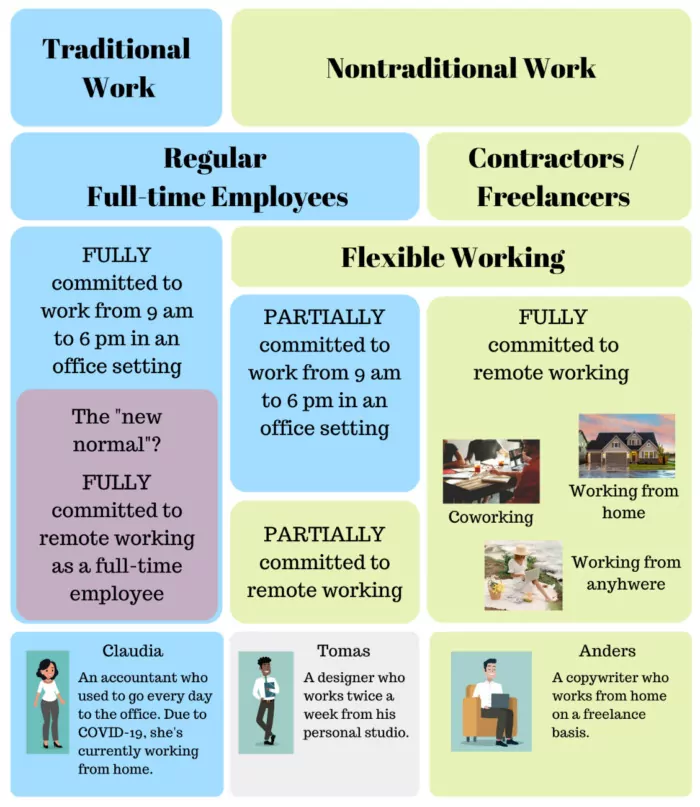Company Remote Work Reviews: A Guide to Understanding Remote Work Opportunities
As the landscape of work continues to evolve, remote work has become a staple for many businesses and employees. The ability to work from home (or anywhere) offers significant benefits for both employees and companies, including flexibility, work-life balance, and access to global talent. However, it’s essential to evaluate company remote work reviews to understand the pros and cons before committing to a remote role.
In this article, we will explore the key factors that make remote work appealing, how to evaluate remote work opportunities through reviews, and best practices for both employees and employers to maximize the benefits of remote working.

Why Remote Work Is Gaining Popularity
Remote work has gained significant traction over the past decade, especially with the global shift during the COVID-19 pandemic. Today, it’s not just a temporary solution; it’s a long-term strategy for many organizations. Here are some of the primary reasons why remote work is becoming a preferred choice for both employees and employers:
-
Increased Flexibility: Employees have the freedom to set their own schedules, reducing the stress of commuting and allowing them to balance personal and professional responsibilities more effectively.
-
Cost Savings: Working remotely eliminates the need for commuting expenses and reduces overhead costs for employers, such as office space and utilities.
-
Global Talent Pool: Companies are no longer limited by geographical location, allowing them to hire the best talent from around the world, often leading to greater diversity and creativity.
However, while the advantages are clear, remote work reviews from actual employees can help you gauge the practical challenges and opportunities that remote positions offer.
What to Look for in Remote Work Reviews
When researching remote work opportunities, it’s crucial to look at the feedback from current or past employees to understand the real-life experience of working for a company remotely. Here are the key elements to focus on when reading remote work reviews:
1. Work-Life Balance
Remote work offers the opportunity for an improved work-life balance. However, without the structure of an office environment, it can sometimes lead to burnout if boundaries aren’t set properly. Pay attention to how companies manage work-life balance, including:
-
Flexibility in working hours.
-
Expectations regarding availability outside of regular hours.
-
Support for taking time off or dealing with personal matters.
Reviews should mention whether the company respects personal time or if employees feel pressured to work beyond their agreed hours.
2. Communication and Collaboration Tools
Remote work heavily relies on digital communication tools. Effective communication is key to a thriving remote work environment, so it’s vital to check whether the company provides employees with the necessary tools for seamless collaboration. Some of the tools companies use include Slack, Zoom, Microsoft Teams, and Asana.
Look for feedback on:
-
How well communication is maintained between teams.
-
Whether the company has regular virtual meetings or check-ins.
-
How easy it is for employees to collaborate and share information.
3. Company Culture and Support
While remote employees work from different locations, maintaining a strong company culture is essential. Reviews can provide insight into how companies foster an inclusive, supportive, and collaborative work environment. Employees should feel connected and engaged, even when working remotely.
Key points to consider:
-
Does the company encourage regular team-building activities?
-
Are there opportunities for career development and training?
-
How does the company handle challenges faced by remote workers?
4. Pay and Benefits
Another crucial factor in remote work reviews is how well a company compensates its remote employees. Pay and benefits can vary widely across industries and regions. Check the feedback on:
-
Salary fairness compared to the industry standard.
-
Benefits offered, such as health insurance, retirement plans, and paid time off.
-
How the company handles pay equity across different geographical locations.
5. Job Security and Advancement Opportunities
While working remotely offers flexibility, it can also come with its own set of challenges regarding job security and career growth. Look for reviews that address:
-
The stability of the company and its remote workforce.
-
Opportunities for promotions or career advancement.
-
Support for continuing education or professional development.
Benefits of Remote Work
Remote work provides employees with many advantages that can make it a desirable choice for many. Here are some of the key benefits:
1. Flexibility in Location and Schedule
Remote workers have the ability to design their work schedules. This flexibility allows employees to avoid long commutes and take breaks whenever they need them. Furthermore, employees can work from any location, whether it’s from the comfort of their home, a coffee shop, or while traveling.
2. Improved Productivity
Studies have shown that many remote employees are more productive when working from home. Without the distractions of a traditional office, employees can focus more on their tasks. Additionally, with the ability to design their own workspace, workers can tailor their environment to suit their productivity needs.
3. Better Work-Life Balance
Working remotely often results in better work-life balance. Employees can spend more time with family, exercise, or pursue hobbies without the stress of a daily commute. This improved balance can lead to increased job satisfaction and a higher quality of life.
4. Access to Global Opportunities
Remote work removes geographical limitations, allowing workers to access job opportunities they may not have been able to otherwise. This is especially beneficial for those living in regions where certain industries are not as prevalent.

Challenges of Remote Work
While the benefits are significant, there are also challenges associated with remote work. Here are some common difficulties that remote workers may face:
1. Isolation and Loneliness
Working remotely can be isolating, especially if employees do not have regular in-person interactions with colleagues. Some people may miss the social aspects of the office, leading to feelings of loneliness and disconnection.
2. Time Management
Remote workers are responsible for managing their time effectively. Without a structured office environment, it can be easy to become distracted or struggle with prioritizing tasks. Companies that offer support with time management and productivity tools can help alleviate these challenges.
3. Overworking and Burnout
Since remote work often blurs the line between personal and professional life, employees may struggle with knowing when to disconnect. Without clear boundaries, some remote workers may find themselves working longer hours, leading to burnout.
FAQs About Remote Work
1. How can I evaluate remote work reviews effectively?
To evaluate remote work reviews, look for feedback on flexibility, communication, company culture, pay, benefits, and career advancement. Check for consistency in the feedback across multiple sources and pay attention to both positive and negative experiences.
2. Is remote work right for everyone?
Remote work is not for everyone. It requires self-discipline, excellent time management skills, and the ability to work independently. Some people may thrive in a remote work environment, while others may prefer the structure of an office setting.
3. How do I stay motivated while working remotely?
To stay motivated, set clear goals, maintain a routine, and take regular breaks. Create a designated workspace to separate work from personal life, and stay connected with colleagues through virtual meetings or social activities.
4. What tools do companies typically use for remote work?
Companies typically use tools like Slack, Zoom, Microsoft Teams, Asana, and Trello to facilitate communication, collaboration, and project management in a remote environment.
Conclusion
Company remote work reviews provide invaluable insights into what it’s truly like to work remotely for a specific organization. By carefully analyzing employee feedback on key aspects like work-life balance, company culture, and compensation, you can make an informed decision about whether a remote work opportunity aligns with your goals and values. For companies, gathering regular feedback and ensuring a positive remote work experience can help attract and retain top talent, resulting in a productive and happy workforce.
Whether you’re an employee seeking a flexible work arrangement or an employer striving to create an effective remote work environment, evaluating remote work reviews is a crucial first step. By doing so, you can ensure that you make the best decisions for your professional growth and well-being.




